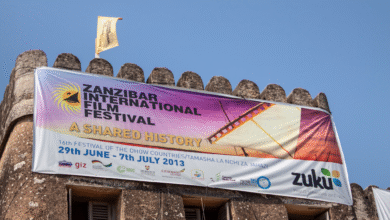« Africa has significant potential to meet the challenge of regional integration » – Marie Chantal Uwitonze
Manager of MACH Consulting – a consulting firm specializing in EU-Africa and ACP-EU relations – Marie Chantal Uwitonze had been working for more than 10 years in the largest international organizations such as UNDP, the European Parliament … Convinced that Regional Integration is crucial for the development of the continent, she is currently the Chairperson of the African Diaspora Network in Europe (ADNE). Interview
Regional integration in Africa appears in all speeches delivered by African governments and regional institutions – but is still a challenge. In terms of institutional framework, mobility of people and goods (…) regional integration does not work. How do you explain it?
The balance of regional integration is different according to regional or sub-regional position. At the regional level, unsuccessful integration is mainly linked to the characteristics and the functioning of the organization supposed to ensure its effectiveness: the African Union which, unfortunately, cruelly suffers from a lack of resources to meetits great ambitions.
Without this budgetary autonomy, the African Union will always be a nice dream and will not be able to curb down its institutional and political problems. For example, it has always had great difficulty in enabling the 54 countries to have a common voice to meet major global challenges such as climate change, energy, migration, security, etc. However, these require tremendous resources! A great number of experts are needed to monitor these projects and inform the Member States.
But is this challenge really perceived at the level of the States?
I think the African States have perfectly understood this issue and I see things moving in the right direction. For example, the fact that the institutional reform mission was entrusted to Paul Kagame, President of Rwanda, who has shown great efficiency in terms of economic reforms at both national and regional levels, is more than promising.
Similarly, at the sub-regional level, the issue is perfect in the Communityof East Africa and ECOWAS. The positive performance in these two sub-regions is closely linked to the political will in their countries to put development, trade, transport, security, technology, employment and mobility issues at the center of concerns.
Conversely, the Economic Community of Central African States (ECCAS) is struggling to bounce up due to instability. Cooperation should be strengthened in the area of security,and regional integration should be considered as an efficient tool for the promotion of peace and security.
Yet, as all the analyzes confirm that Africa, to meet many of its challenges -energy deficit, sub-infrastructures, low participation in world trade, security … –must strengthen regional integration?
Absolutely, regional integration is essential to boost economy in African countries. But apart from the major economic benefits to Africa’s competitiveness and integration into world trade, regional integration would prevent regional conflicts and thus contribute to building the fundamentals of the continent’s economic boom.
In an era of globalization, economic and security borders are no longer meaningful. « Union is strength », and it is more than ever a reality. I am therefore convinced that regional integration will be crucial for the African renaissance.
You are working as Consultant to the States and to institutions such as the European Union, what is your message to accelerate regional integration?
Africa has significant potential to meet the challenge of regional integration, it is just a matter of methodology. First, economic diversification should be strengthenedat the national level by meeting not only the domestic but also the regional and international demand. We must also accelerate industrialization in Africa to create more values and more jobs. In addition, there is a need to strengthen the development of infrastructure, transport and communication facilities, the use of new technologies and access to energy – to create an environment conducive to trade and economic mobility.
Finally, more political will is needed. For example, CEA has been very successful thanks to the Enhanced Cooperation System (CEA Northern Corridor) launched between Rwanda, Kenya and Uganda, which has considerably reduced the obstacles to the mobility of persons and the transport of goods. Other sub-regional countries such as Ethiopia, South Sudan, Tanzania and DRC have followed the lead. Such sub-regional cooperation mechanisms help move gradually towards regional integration, and facilitate intra-African investments, especially in the areas of bank and insurance, telecommunications and building.
What is the role of the African Diasporas, the 6thAfrican region, as it is sometimes called, that have never been so mobilized in their host countries for this « one global Africa »?
The African Diaspora is a great opportunity for Africa. The total amount of diaspora funds is three times larger than development aid. The Diaspora should be encouraged to invest in the countries of origin and to direct these funds towards sustainable development projects.
In addition, the Diaspora is a source of skilled manpower needed for the implementation of major projects in Africa, especiallyat the industrial and technological level. The relationship between the continent and its diaspora should be strengthenedto enable the latter to participate fully in building the future of Africa.
To allow Africa to have tools to use, on an optimum basis, the expertise of the Diaspora, the Africa Diaspora Network to Europe (ADNE) is currently working on a project to create a database of The African Diaspora to Europe (« The African Diaspora Skills Database »). This database, which will be aiming at identifying the skills available within the Diaspora to Europe, will help African countries recruit experts, engineers, professors, etc. needed for capacity building at both national and regional levels.







